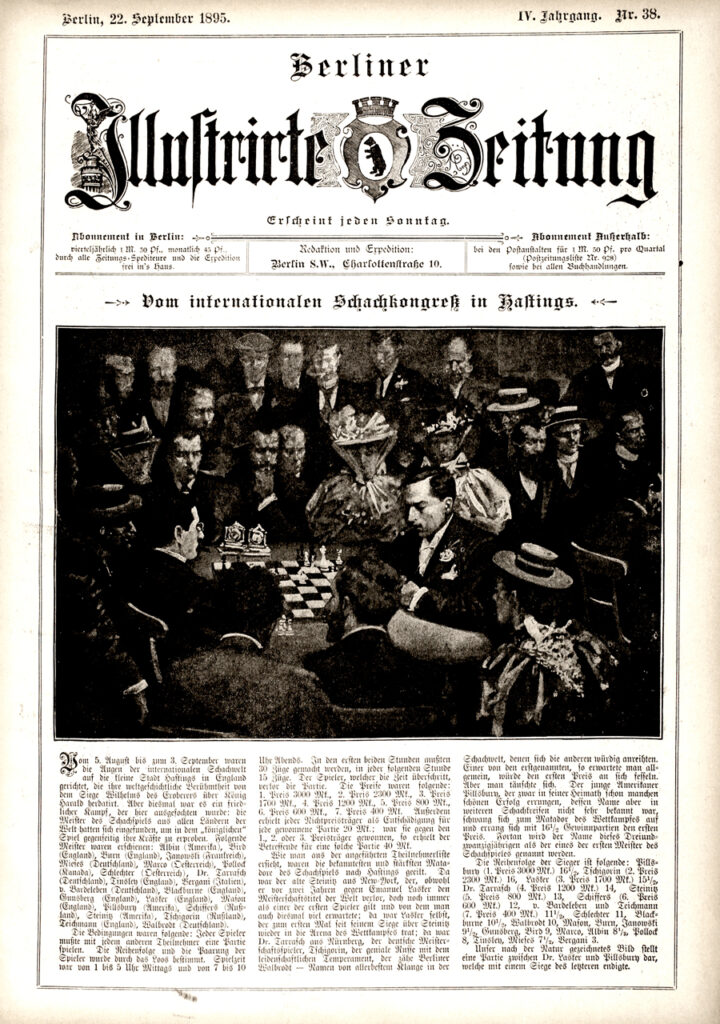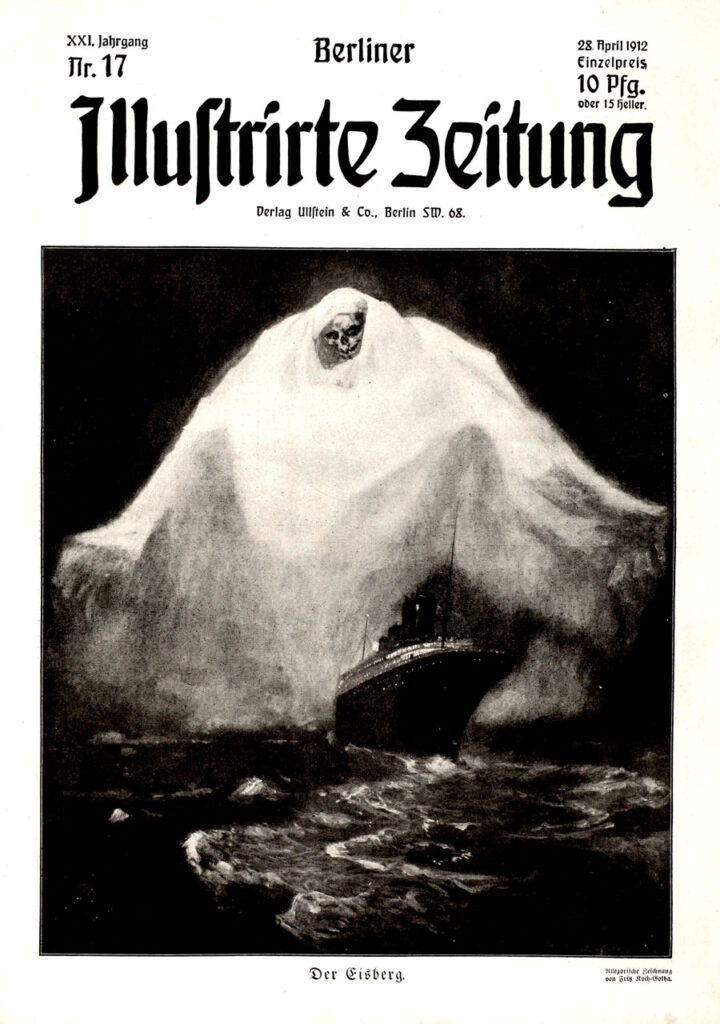Was an uppercase j used to replace an uppercase i letter on German monument inscriptions?
Upvote:5
The convention of replacing uppercase I with J seems to be used in other languages, too. I recently visited a WW1 war grave with a monument commemorating Italian POWs:
Agli Eroi d‘Jtalia
1914-1918
Italian does not use the letter J in native words, so replacing I with J shouldn't be problematic regarding pronunciation.
Upvote:6
Actually it is much simpler: the name Ida is sometimes written Jda; the inscription says Jda because the woman wrote her name that way.
This does not mean that in general one can substitute the letter J for the letter I in German. It is a peculiarity of the name Ida.
A semi-well-known example is the Prospect vom Berge Jda (A view from mount Ida), engraved by Albert Henry Payne after a painting by William Henry Bartlett, c. 1850). (The Mount Ida in question is neither of the two classical Mount Idas, but rather some hill in New York State, U.S.A.)
Here is an article from the newspaper Entlebucher Anzeiger, dated 20 June 2014: "Ski-Weltmeisterin Jda Schöpfer verstorben", ski woman-world-champion Ida Schoepfer is dead. (Note that the article has both Jda and Ida. Newspapers these days.)
German Wikipedia has this to say:
Bis heute gibt es noch ältere Schreiber, die anstelle des Großbuchstabens I ein J verwenden (z. B. Jda, Jtalien). Auch bei serifenlosen Schriften wird manchmal ein großes J anstelle eines großen I gesetzt. Ein Grund dafür ist, dass bei derartigen Schriften das große I und das kleine L oft schwer oder gar nicht unterscheidbar sind, vor allem wenn beide Buchstaben nebeneinanderstehen (etwa in Jll, Jller, Jlmenau, Jllustrierte im Unterschied zu Ill, Iller, Ilmenau, Illustrierte).
Bei einigen Fremdwörtern existiert sowohl eine nach der neuen deutschen Rechtschreibung gültige eingedeutschte Schreibweise mit J, als auch eine fachsprachliche mit I (z. B. Iod, neben Jod). In der Chemie wird die Schreibweise mit I sogar bevorzugt.
Translation:
To this day there are older writers who use a J instead of the capital I (e.g. Jda, Jtalien). A capital J is sometimes used instead of a capital I in sans serif fonts. One reason for this is that in such typefaces, the uppercase I and the lowercase L are often difficult or impossible to distinguish, especially when both letters are next to each other (e.g. in Jll, Jller, Jlmenau, Illustrierte as opposed to Ill, Iller, Ilmenau, Illustrierte).
For some foreign words, there is both a German spelling with J, which is valid according to the new German orthography, and a technical spelling with I (e.g. Iod, next to Jod). In chemistry, the spelling with I is even preferred.
Upvote:23
Can uppercase j be used to replace an uppercase i letter on a German monument inscription?
Before 1945, it was common place to replace uppercase 'i' with an uppercase 'j' letter.
The main reason was that in the past a uppercase 'I' was written (in the Antiqua type set) as a vertical line (without the now common horizontal bars on the top and bottom) and thus looked the same as a lowercase 'l' that was also written as a vertical line.
Uppercase 'J' was therefore used to make the distinction clear.
J - Verwendung in der deutschen Sprache – Wikipedia:
- Jll, Jller, Jlmenau, Jllustrierte
- Ill, Iller, Ilmenau, Illustrierte
If you look at the bottom of the sample image, you will see 'Dipl. Ing.' (where 'J' is not used and is dated with 1978).
It looks the same as the 'l' of 'Dipl'.

Even when Fraktur was used, the uppercase letter 'J' was often used instead of an uppercase 'I'.
Berliner Illustrierte Zeitung Archiv 1895 - 1945 | Historische-Magazine.de
| 1895-09-22 | 1912-04-28 |
|---|---|
 |
 |
 |
 |
Berliner Illustrirte Zeitung - Wikipedia
Also in 1941, the old-fashioned spelling of its name (sometimes described as a mistake), which had been retained when the masthead was modernised at the turn of the century,
was finally changed to the more modern Illustrierte [from Illustrirte].
- the usage of the uppercase letter 'J' was not changed
Upvote:29
Fraktur, a typeface that was common in Germany until well into the 20th century, uses a capital I that is very much alike to a capital J in other fonts. See these samples on Wikipedia; the capital J has an extra dash:
As others pointed out in the comments, this is actually common to other writing scripts, also because a capital I can be very similar to a lower case l.
More post
- 📝 Why is the nuclear bombing of Hiroshima so much more infamous than that of Nagasaki?
- 📝 English monarchs on the battlefield
- 📝 Where is Ivan the Terrible's Library?
- 📝 Is limestone robbed out from pyramids ever seen in local use?
- 📝 Is "Lenin’s Testament" authentic?
- 📝 Why do people not talk about Tokyo fire bombing during WW2?
- 📝 When was "diablo" first used to refer to the Devil?
- 📝 Were the names in 'Les Miserables' ever common?
- 📝 Is there any resource to learn interiors of a house for particular classes in 17th Century in Bohemia?
- 📝 Why is communism hated by some ppl?
- 📝 Did the Eastern Romans also use Roman concrete?
- 📝 When did tea become "a thing" in England?
- 📝 Who lived on Golden Square in London in the 18th century?
- 📝 What country has the shortest history of human habitation?
- 📝 Was the term "depression" (in the economic sense) originally coined to describe and downplay current events in the 1930s?
- 📝 What is the evidence to repudiate this version of the "stab in the back" myth?
- 📝 What kinds of WW2 POWs were treated best?
- 📝 When was the last time period where one could travel by steam powered locomotive across the United States today?
- 📝 Are there examples of stone age cultures living in proximity close to iron age cultures without adapting to metal use?
- 📝 How voluntary was Sati during the Mughal era?
- 📝 Were the officers assigned to Kamchatka being punished?
- 📝 Where can I find a reliable archive of Hitler's speeches?
- 📝 What proof would a Roman patrician have of his status?
- 📝 How to travel from Koblenz (Germany) to Paris (France) in May 1805?
- 📝 Why did the Soviet Union out-pace the US during the space-race?
- 📝 When did worshipping of ancient Greek gods come to an end?
- 📝 Was classical Alexandria really this brutal and class-segregated?
- 📝 "Destructive force" carried by a B-52?
- 📝 Which war games did Napoleon practice with his generals?
- 📝 Why is Crispus Attucks the one who gets all the attention?
Source: stackoverflow.com
Search Posts
Related post
- 📝 Was an uppercase j used to replace an uppercase i letter on German monument inscriptions?
- 📝 What did people used to exchange for goods during the 1920s German hyperinflation while the official currency was not trusted
- 📝 Why was the German system of interlocking plates not used after WWII for armored vehicle construction?
- 📝 Where did Hitler get the funds to invest in economic development programs such as the autobahn when the German economy was in a depression?
- 📝 What kind of ink was used by medieval scribes in Iceland, given that there were no plant galls for iron-gall ink?
- 📝 Was any stimulant used in wars before WW2 that gave a significant advantage to soldiers?
- 📝 Why was language not used to establish dominance throughout England 1066 AD–1360s CE?
- 📝 Was there any practical use for German spiked helmets (Pickelhaube)?
- 📝 What was the ratio of German to Soviet losses on Eastern front during different stages of the war?
- 📝 What was the state of the German rail system in 1944?
- 📝 Who was the most successful German spy against Great Britain in WWII, from the contemporary German perspective?
- 📝 What was the "Favorable result" that the German admiralty was expecting from the naval attack on the Royal Navy in 1918?
- 📝 Why was the shape of German states pre-WWII (especially Prussia) so complicated?
- 📝 Why did other German political parties disband so fast when Hitler was appointed chancellor?
- 📝 What kind of labor was used to build the Egyptian pyramids?
- 📝 Was German ever an official language in the USSR?
- 📝 What was the legal status of an East German once he had reached West Germany?
- 📝 What was the contemporary German public opinion on the Herero Genocide?
- 📝 What was used instead of toilet paper in the US and the UK prior to 1900?
- 📝 Why was Stalin surprised by the German attack in June 1941?
- 📝 What German torpedo problem was discovered in 1942?
- 📝 After the fall of the Roman Empire, where did their armor go? Was it used by any dark ages forces?
- 📝 Was the insanity of kings used as an argument against monarchy?
- 📝 Was slave labor used in rebuilding the White House?
- 📝 Was the Soviet Union in 1945 seeking to capture German soldiers and civilians, or drive them west?
- 📝 Was Nazi science that involved human experimentation ever actually used for anything?
- 📝 Why did Operation Market Garden go ahead when the allies knew German armor was in the area?
- 📝 When was the tactic of chaining ships together last used in a major naval battle?
- 📝 What was the official language used across European monarchies in the XII century?
- 📝 When was "diablo" first used to refer to the Devil?



